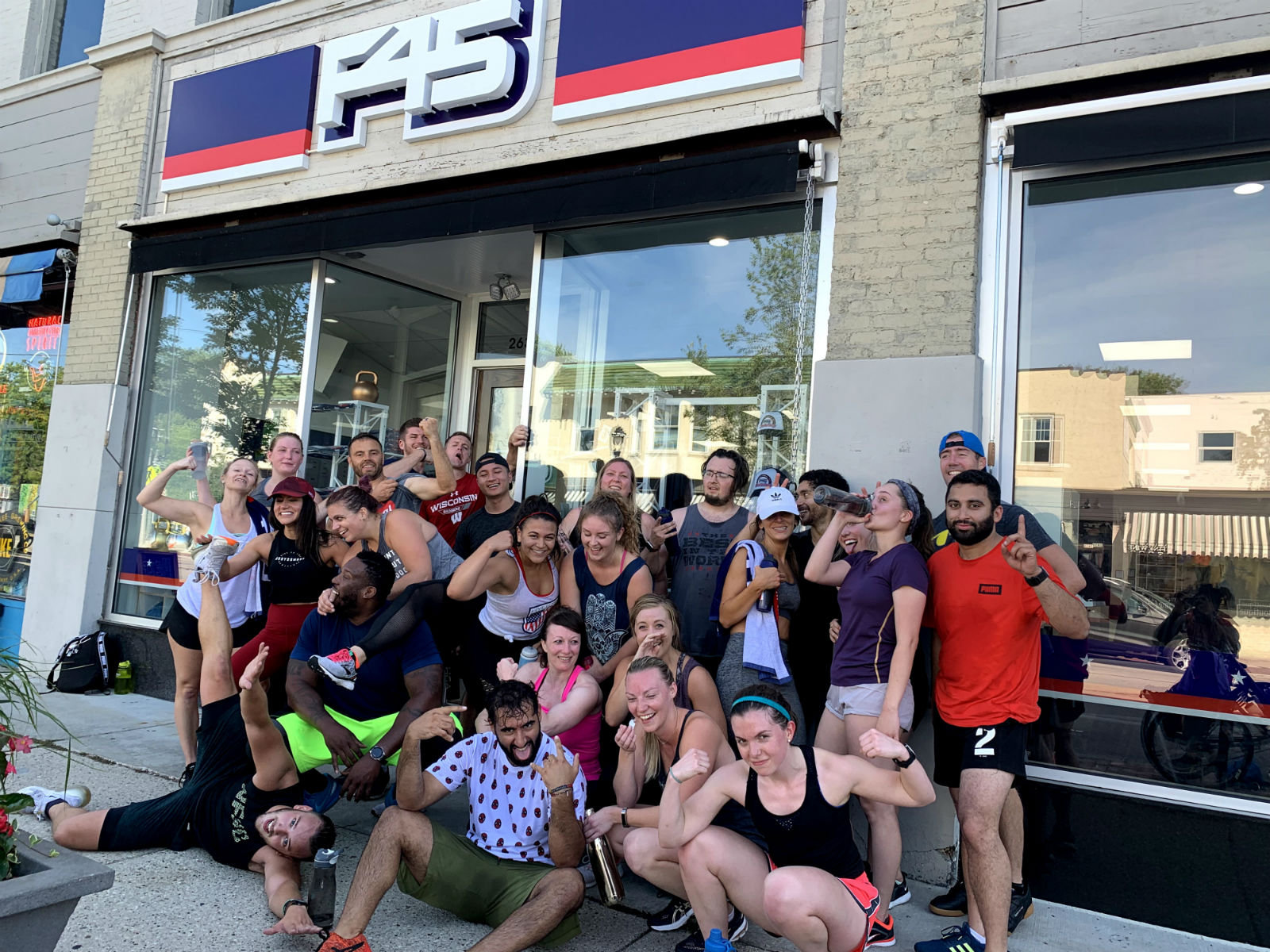In 1930 the life expectancy of the average American male was 58.1 years.
Celebrating his 80th birthday that Oct. 6, Leonard Barnickel said people could easily live to 100 if they exercised regularly, ate prudently and thought positively.
"Joy, temperance, and repose – and you can slam the door on the doctor’s nose," recited the pioneer Milwaukee fitness guru who ate mostly whole grain cereal and walked 15 miles every day before hitting the hay at 9:30 p.m.
Born in New York City at the midpoint of the 19th century, Barnickel quit school at 14 and went into the cigar-making business with his father. But his future in the stogie trade was snuffed out when the Barnickels moved to Milwaukee in 1868 and Leonard joined the Turnverein – Turner Hall – on North 4th Street.
As a boy Barnickel had won several gymnastics competitions in the east, and now under the tutelage of George Brosius, the instructor/trainer responsible for Turner Hall’s global reputation as a house of champions, he became one of them.
From the Los Angeles Herald of Dec. 28, 1890: "In July, 1869, (Barnickel) won the all-round athletic championship of Wisconsin. The following year he gained diplomas for excellence in gymnastics at LaCrosse, Oshkosh and Watertown. At the gymnastic championship meeting in Cincinnati, June 29, 1873, he defeated all comers with ease. He took third prize in the world’s championship all-round gymnastic tournament at New York, Aug. 26, 1877."
Brosius was also director of the Normal College of Physical Education in Milwaukee, whose mission was turn out "true apostles in the great cause of Physical Education." After he graduated as one of them, Barnickel’s name, like that of Brosius, usually appeared in the public prints with the prefix "Professor."
"There is a revival of the old interest among Americans in manly sports," noted the Milwaukee Sentinel in a March 22, 1879 story about the first meeting of the Milwaukee Athletic Society the day before. "The bankers in their banks, the merchants in their stores, the dealers on (the Stock Exchange), and even a number of pretty misses in the First and Seventh Wards are sighing after the parallel bar and boxing gloves …
"Leonard Barnickel, the gentleman whom the gymnasium have selected as their instructor, was present, and expressed himself well pleased with the success which has so far attended the enterprise. He has been 10 years with Prof. Brosius, is one of the first experts in fencing in the country, and competent in every way."
By the time the MAS changed its name to the Milwaukee Athletic Club, under Barnickel’s directorship it had supplanted Turner Hall as the city’s temple of fitness. The Professor put the 500 members through their rigorous paces at the club’s gym in the Broadway Armory.
"He taught fencing, club swinging and baseball – every sort of thing, for in those days a physical director knew boxing, wrestling and all apparatus work and had to be an all-around gymnast," said The Milwaukee Journal. "‘Len’ himself ran the mile in three seconds less than five minutes in those days."
His renown as a fencer was so great that in August of 1886 a Frenchman proclaiming himself a nonpareil with the épée came to town expressly to challenge Barnickel. They squared off at the annual English Picnic in Schlitz Park, and when Barnickel was done there was no more aptly-named fellow than his hapless opponent, identified in the papers as "Prof. Schmuck."
After 19 years Barnickel left the MAC and opened his own gym on North 6th Street and West Grand (now Wisconsin) Avenue, where his knowledge of fisticuffs developed several local boxing stars and aided world heavyweight champions James J. Corbett and Bob Fitzsimmons when they came to town. In the late 1890s, Barnickel moved his gym back to the Broadway Armory and promoted the city’s first amateur boxing matches there.
"Mr. Barnickel is held in high esteem by his many admiring friends in Milwaukee, and particularly by the army of men who have received the great benefits of his training," lauded the 1909 edition of Memoirs of Milwaukee County. "He seems to have learned the secret of perpetual youth for while he is well past the meridian of life in appearance he is many years younger."
Into his 60s, every fair-weather Sunday the Professor led members of the Barnickel Hiking Club on marches from Downtown Milwaukee to Oconomowoc or Cedarburg and back.
If he’d had his way, Barnickel might have insisted that every local policeman and fireman join the club. In charge of the physical testing required of every new cop and firefighter since 1900, Barnickel was forever urging tougher standards that would result not only in leaner, fitter recruits but also more hirsute ones.
"Men who take proper care of themselves," he insisted, "will not get bald."
"…With a ready smile, a gay twinkle in his gray eyes, and straight shoulders thrown back, (Barnickel) laughs at the very idea of old age," said a Sunday supplement piece titled "Pioneer Turner is still an athlete at 80."
The laughter stopped soon after that when Barnickel was let go as chief physical examiner for the police and fire departments in favor of a younger man.
In February of ’31, Prof. Barnickel took off from his home at 575 Frederick Avenue, and when he wasn’t seen nor heard from by midnight the police were called. He turned up, but probably wished he hadn’t. On April 20, 1932, Barnickel’s 53-year-old son, Arthur, was found in his car on North Lincoln Memorial Drive near North Avenue with two self-inflicted gunshot wounds. Before he died, the unemployed man said he was despondent over "financial matters."
Leonard Barnickel had inherited the southeast corner at North 6th and West State Streets, and in 1930 he sold the property for $25,000. He was worth about $37,000 – the equivalent of almost a half-million in today’s dollars – until he put his son in charge of his estate.
When Arthur killed himself, there was nothing left.
"His Life Savings Gone, Barnickel Asks County Aid," was the headline in the Sentinel on July 9, 1932. When Judge John C. Karel granted the Professor a county pension of $30 a month for his service to the police and fire departments, Barnickel wasn’t in court for the emergency hearing. "…He was in county emergency hospital following a fall after he fainted [the night before] on W. Burleigh St. between N. 4th and N. 5th Sts.," reported The Journal.
On Oct. 13, 1932, Leonard Barnickel hiked off into eternity. He was well shy of the century mark, but those last two years alone probably felt like 100.







